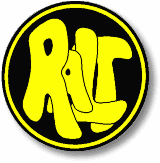

 Ralt
RaltRon Tauranac was the designer behind the Formula 1 World Championship winning Brabham Grand Prix cars of the 1960's and when Bernie Ecclestone bought out the company and after doing a number of freelance projects Tauranac decided to set up business on his own account. Ron started in racing in 1946 in his native Australia when with his brother Austin Lewis (Ron + Austin + Lewis + Tauranac= RALT) he began building cars for local competition events.

Ron himself competed in hillclimbs during the 1950s where a fellow competitor and later friend was Jack Brabham. By 1959 Ron was ready to accept Jack's invitation to join him in England to set up Motor Racing Developments and begin the long run of very successful works and customer cars. Numerous race wins were taken in F1, F2 and F3 with both Jack Brabham and Denny Hulme winning the World Drivers Championship and Brabham taking the Constructors Cup. For several seasons Brabham dominated F2 and especially F3 as customers favoured the cars' blend of simplicity, ease of maintenance and most importantly their sheer competitiveness. Eventually when Jack retired Ron bought Brabham and ran it for a year before selling it onto Bernie Ecclestone.
After a period that included designing the Trojan F1 and F5000 cars and working for Frank Williams Ron decided he wanted to get back into designing customer cars so in 1974 Tauranac set up the Ralt factory at Woking in Surrey and in 1975 the first Ralt, the RT1, was produced. The design philosophy behind the RT1 was to build a strong, reliable and easily maintained customer car that would be eligible for a number of classes, primarily Formula 2 and 3, and in the USA Formula Atlantic. Such was the success of the Ralt marque that by 1984 the 500th Ralt was delivered. In 1988 March bought out Ralt and Tauranac stayed on as a consultant, for the next couple of years March continued to win a lot of races but into the early nineties the Ralt star faded along with that of March. In the early nineties the 93C and the 94C turned out to be complete disasters and the Ralt name dropped out of F3 with hardly a ripple. At the end of the decade there was a surprise return to racing and although early results were disappointing Ralt returned to the UK championship in 2002 but it was another abortive effort and, sadly, the illustrious history of Ralt came to an ignominious end.


The first F3 Ralt, the RT1, consisted of a 16-gauge L72 aluminium monocoque with a steel subframe behind the cockpit. This consisted of two tetrahedron frames that ran to the bottom of a square frame that attached to the Hewland gearbox, a pair of tubular brackets secured the engine to the back of the tub. Additional braces located the top of the frame to the engine adaptor plate. Double wishbone suspension with outboard springs and dampers was employed at the front whilst a single top link, reversed bottom wishbone and twin radius rods were to be found at the rear, also with outboard springs and dampers. The radius rods were attached to the outer corners at the rear of the tub via steel plates. The front of the car used a large full width fibreglass nosecone whilst a wing was attached to the gearbox at the rear via a tubular frame. Brakes were solid 10.5 in. discs front and rear.
The car was on the pace immediately with Larry Perkins going well in the UK winning twice at Brands Hatch as well as taking a first at Monza and Bertram Schäfer taking a number of top three places in the German Championship including a win at Ulm.
Track: front 50.25 ins. rear 51 ins.


A number of small changes were introduced for 1976, the most noticeable was a new nose cone design with rounder lines and an adjustable splitter. In addition the forward braces for the roll hoop were repositioned closer to the hoop, presumably for driver comfort. The track was also narrowed to 47.375 ins. at the front and 48.5 ins. at the rear.
Results were good without being spectacular, once again Bertram Schäfer went very well taking three wins.


For 1977 Tauranac introduced a few more small changes to his design, new elliptical bodywork was fitted. The intention had been to use this from the beginning but Tauranac held off as he felt customers would not like it as it made the car look bigger than it actually was. In addition changes to the technical regs meant that the rear wing now attached to the rear of the gearbox by a large diameter tubular steel crossbeam that doubled as the oil catch-tank.
The RT1 seemed to hit its stride in 1977 and although there were only two wins in the UK for Geoff Brabham on the continent the Ralt took nineteen major wins with Anders Olofsson taking the runner-up spot in the European Championship and won the Swedish crown whilst Elio de Angelis took the laurels in Italy although two of his four wins came in a Chevron.


There was a relatively major redesign carried out to the engine spaceframe for 1978. In effect the twin tetrahedrons were flipped so that instead of the main spar running along the bottom of the tub with the "hypotenuse" going from the base of the roll hoop to the bottom of the gearbox, the main spar now ran from the base of the roll hoop to the top of the gearbox with the "hypotenuse" going from the bottom of the tub to the top of the gearbox. The square frame around the gearbox was replaced with a cast aluminium crossbeam bolted to the top of the gearbox to which the top link and damper were mounted. A cast magnesium bracket bolted to the bottom of the gearbox to take the lower wishbone. The radius rods now attached to the top and bottom of the tetrahedrons where they were bolted to the tub. The lower radius rod had a choice of three mounts to adjust the rear castor. The wishbone design was changed with an additional pair of plates to take the rearward attachment for the lower radius rod, previously it had been located on the wishbone via a clevis bolt.
Some teams tried fitting the wide track F Atlantic suspension which seemed to make the car more stable and improved its handling in mid-speed corners. Also some teams fitted adjustable roll bars and went to great lengths to lighten the cars.
The RT1 dominated the UK scene winning 24 of 29 races with Nelson Piquet and Derek Warwick ruling the roost. Similarly the European Championship was dominated by Jan Lammers and Anders Olofsson who won eight races between them, Olofsson took the Swedish Championship again and Bertram Schäfer came out top in Germany.
Total F3 production: 20.





1979 saw ground-effect arrive in F3 and constructors such as March, Chevron and Martini soon had their wing cars up and running, some with more success than others. The RT1 continued to be used by many drivers and although it was still capable of getting its driver on the podium it was no longer a winner. Thus the RT3 was born, it would soon become one of the most successful F3 designs ever. Comprising a very stiff aluminium tub with honeycomb bulkheads, suspension was inboard all round with the fuel tank located centrally. The tub was very narrow which allowed for wide, skirted sidepods for maximum ground-effect. The whole thing was enclosed in a very stylish body.
Early indications gave no clue as to its winning future, production was slow and only a handful of cars were built. Initially the car was a little heavy and it took drivers time to get used to it. The best result was probably a third at the Nurburgring in a German Championship round for Georg Bellof.


Not surprisingly perhaps in view of its slow start in 1979 most drivers preferred the more proven March/Argo option for 1980 and it was not until round six of the British Championshiop that a RT3 appeared. However the chassis now began to show its worth as testing refined it and drivers got the knack of setting it up. Fortunately for Ralt front-runner Stefan Johansson was, like all other 803 drivers, having trouble with the latest March finding it very inconsistent. His Project Four team (owned by Ron Dennis) decided to switch to an RT3 for the closing races of the year and Johansson immediately took pole position for, and walked away with, the final four races to win the Vandervell British F3 Championship. It was a similar story in Germany where the RT3s of Frank Jelinski and Wolfgang Klein took first and second in the German Championship.


The RT3/81 was a lightly revised version of the 1980, it featured a strengthened engine bay and reprofiled sidepods. In the UK the RT3 dominated the Marlboro Championship taking eight of the top ten places and winning nineteen out of twenty races. During the season Tauranac introduced revised suspension geometry based on the USA spec F Atlantic car. It was a similar story in Germany with the RT3 taking 5 of the top six places in the championship. It was only in the European Championship where the RT3 suffered it seemed unhappy on the European tyres although it was only at the final race that a RT3 appeared on the Michelin tyres that largely dominated the series.



The 1982 RT3 continued the evolution of the original model and as its success increased more and more teams switched from other manufacturers, especially now that March were no longer building F3 cars. A number of the more experienced teams began to experiment with minor modifications to the design, notably to the bodywork, in an effort to gain an edge (however small) over their fellow RT3 users.
The Marlboro British Championship saw an almost total Ralt dominance, 20 wins out of 20 and 117 point scoring finishes out of 120. In Germany it was a RT3 1-2 finish in the championship whilst the only RT3 in Japan took the F3 Challenge Cup by a comfortable margin and both the French and Italian championships went to RT3 drivers. It was only in the European Championship that the RT3 suffered due to a lack of a concerted effort by any teams running a RT3. Nevertheless James Weaver took three wins and a second in only four races in the Eddie Jordan car to show what might have been with a full season season.




Further evolution was the name of the game for the RT3/83, the sidepods were reprofiled once again, the rear end was further stiffened and there were slight suspension geometry modifications. Most obvious change was a new tub with a revised footbox area as a result of new FISA regulations. These design changes led to a more aerodynamic bodywork that featured a reprofiled pointed nosecone. Unfortunately the F3 cars were now suffering from the same problem that was ruining Formula 1, the cars were loosing aerodynamic efficiency as soon as they sat in the dirty air of another car.
Once again it was total RT3 dominance in the British Championship with Ayrton Senna and Martin Brundle winning 18 out of 20 rounds with the RT3s of Allen Berg and Calvin Fish taking the other 2 races. It was a similar story in the European Championship with every round going to a RT3 and the top nine places in the final standings going to RT3 drivers. Things were slightly different in the national championships, Anson took the German Championship with RT3s second and third, it was a similar story in France, Martini first, Ralt second and third. Italy, Japan and Sweden saw the status quo returned with RT3 drivers winning both championships.



For this, the final incarnation, of the RT3 the most obvious change to the design was the adoption of a pushrod front suspension in place of the previous rocker arm design. Some drivers found the revised front suspension made the car more nervous and they reverted to the older system although most agreed that the pushrod system had more potential given sufficient sorting. Further rear-end strengthening and sidepod reprofiling were also introduced. Some teams also adopted the stronger Hewland FT200 gearbox in place of the more usual Mk9.
In the Marlboro British Championship it was business as usual, 17 rounds, 17 RT3 victories with Johnny Dumfries dominating, he won 10 rounds in all. In addition with the exception of one sixth place for Magnum every single point position went to RT3s. The B Class championship was also a RT3 benefit with the top seven places being sewn up. In Germany and Italy it was a RT3 1-2-3-4 in their respective championships whilst it was a top ten clean sweep in Sweden. Only in Europe and France did the RT3 stumble. Ivan Capelli took the European Championship in the Martini MK42 but his win was tainted after his car was found to have an illegally modified airbox at Monza and he was disqualified. RT3s took the next four places. In France it was a Martini home win with the MK42 taking the top five places.



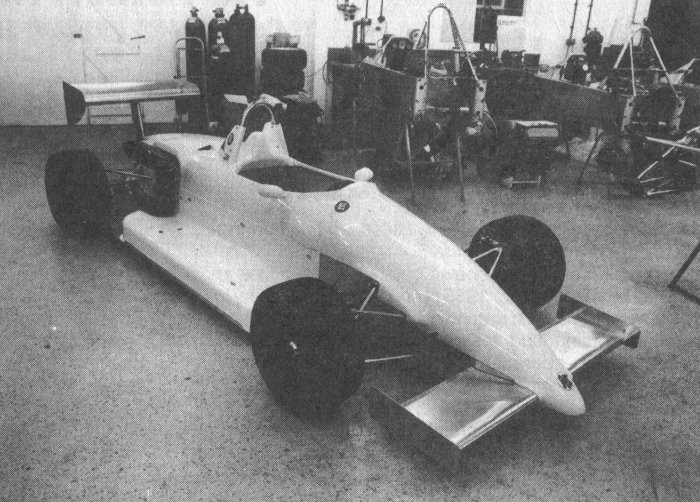
Continuing with the RT3 design was no longer feasible for 1985 with the introduction of the new flat bottom regulations so Tauranac came up with a new design, the RT30. The new car was clearly related to the RT3, at least as far as looks went but under the skin it was another story. Most obvious difference was the low sidepod on the right, Tauranac had spotted a loophole in the regulations as regards the the size of the deformable structure required and he used this to improve the aerodynamic advantage of the car. He also utilised the "coke bottle" shape pioneered by the McLaren F1 team to further aid the downforce available. At the rear a new development was fitting longitudinally mounted shock absorbers on the top of the gearbox. The car retained an aluminium tub with a honeycomb dash panel despite main rival Reynard taking the composite option. The chassis was 4 inches longer that the RT3 and a tubular "A" frame was used at the rear to mount the engine. Tubular steel wishbones were employed front and rear with pull rod operated dampers. For the first time Tauranac used a bell housing oil tank. The new flat floor was made from varnished wood and extended from the front of the pods to the rear where it joined to upswept sections.
Not surprisingly the car was another Tauranac winner although Reynard was a very serious threat. An early season change to the front suspension geometry saw the car easier to balance and it began to win. Mauricio Gugelmin took the British Championship with three victories and Dave Scott, Gary Evans and Gerrit van Kouwen also took UK wins. To nobody's surprise the new Class B for year old cars was a RT3 benefit with wins at every round, final victory going to Jamaica's Carlton Tingling. Results on the continent were good without being brilliant, Michel Trollé took third in the French Championship whilst in Germany Kris Nissen and Adrian Campos were second and third. In Japan the RT30 of Kouji Satou took first place ahead of the similar car of Aguri Suzuki.



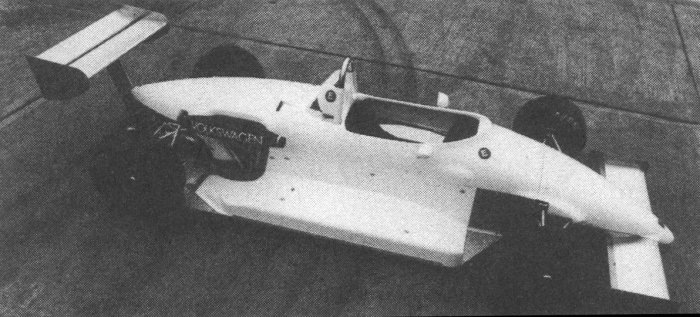
The old, familiar, and very successful, Tauranac evolutionary ploy was used in 1986 when the RT30 became the RT30/86. Utilising the same nose and cockpit as the '85 model the two cars looked very similar but there were a number of significant changes. At the rear the dampers were moved back to a vertical position as wind tunnel testing showed a lower cleaner underwing was the way to go. The rear uprights were new allowing the lower wishbones to be lifted above the one-piece rear floor. Inboard the wishbones attached to a new combined bellhousing and oil tank. A modified left-hand sidepod contained a new smaller copper radiator. The tub was still aluminium honeycomb but was generally tidied up to make it more user friendly.
The RT30/86 was generally very successful, although the British Championship went to Andy Wallace and his Reynard the next 11 places went to Ralt. The German and Japanese Championships fell to Ralt and the chassis did well in both France and Italy despite coming up against hordes of Martinis and Dallaras. The car did gain a reputation for being hard to get the maximum out of and a few drivers tried switching to Reynard in the UK but didn't go any better so perhaps it was a psychological problem than anything else.
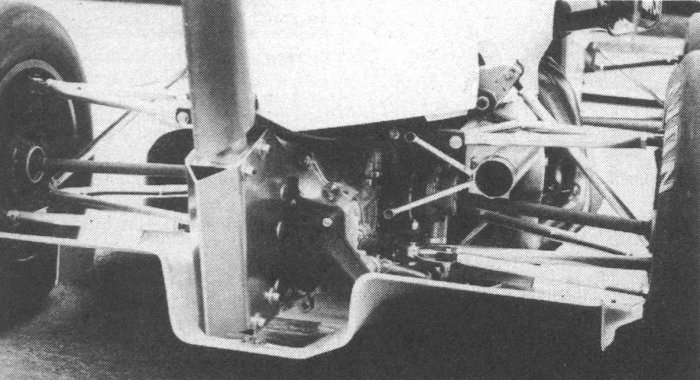

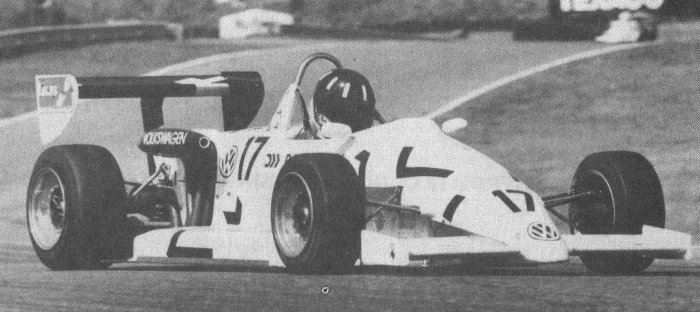


For 1987 a new car was introduced, the RT31, although it looked very similar to the RT30 it was in fact a largely new car in all respects. Rather than the previous aluminium honeycomb the tub now used outer skins internally clad with honeycomb composite panels tightly fitting between the bulkheads. The new design was claimed to increase rigidity as well as giving greater energy absorption in the event of an accident. At the front the springs and dampers were now mounted above the footbox and angled to the rear (they were angled forward on the RT30/86). The bulkhead forward of the dash hoop that takes the spring loadings was machined from solid on a CNC lathe. The tub itself was three inches longer between the engine and cockpit than on the 1986 car both to improve the driveability and to allow the fitment of an improved fuel collection system. The whole car was slimmer than the RT30/86 which meant that wider, deeper front wings were fitted without interfering with the airflow to the oil and water cooling systems in the left-hand pod, the water radiator size was increased by 25%.The flat floor was made from plywood which merged into the composite diffuser at the rear. The car now featured a contoured head fairing on the very smooth bodywork. Suspension was double wishbone all round with pushrods and "nodders" operating the dampers. The gearbox was a Hewland 5-speed with the option of a 6-speed at extra cost.
Track: front 56 ins. rear: 52 ins.
Wheelbase: 102 ins.
Length: 167 ins.
The RT31 was up against some very tough competition from both Reynard and Dallara and results were mixed. In the UK honours were pretty much even with Reynard and Ralt winning nine races each although Johnny Herbert won the Championship in a Reynard. The RT30 took second to fifth in the B Class Championship. In France the RT31 was second and third behind the Dallara of Jean Alesi. Understandably in Italy it was all about Dallara and fourth in the final German standings was the best result for a RT31. Ross Cheever won the Japanese title splitting his time between an RT30/86 and a Reynard 873 whilst most of the next places went to either RT31s or RT30/86s. The lower key Swedish Championship went to the RT31 of Micke Johansson.
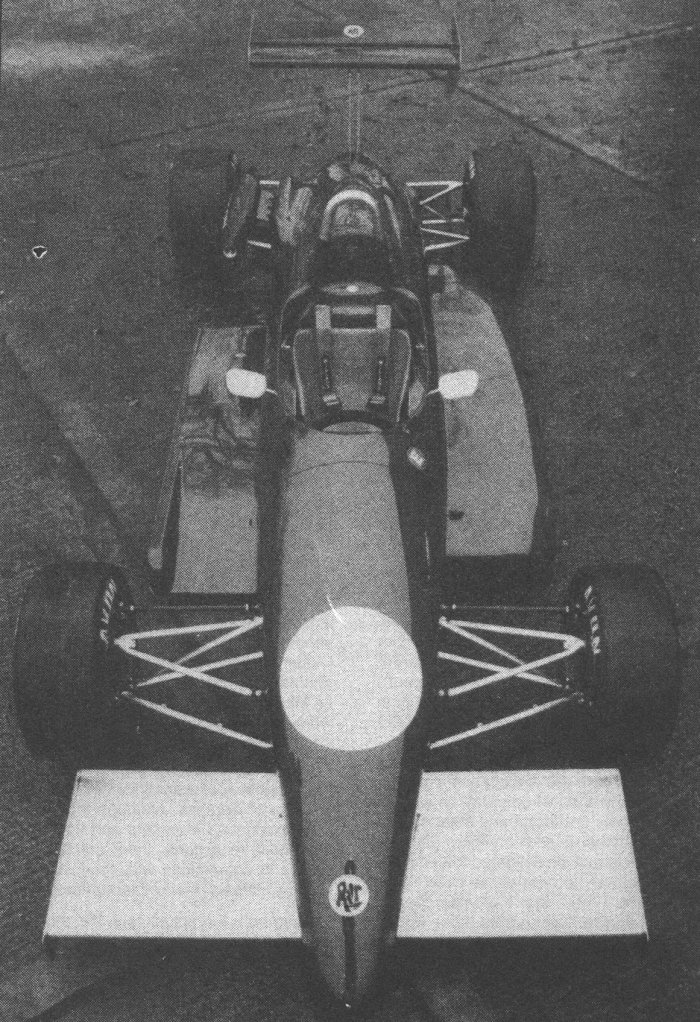
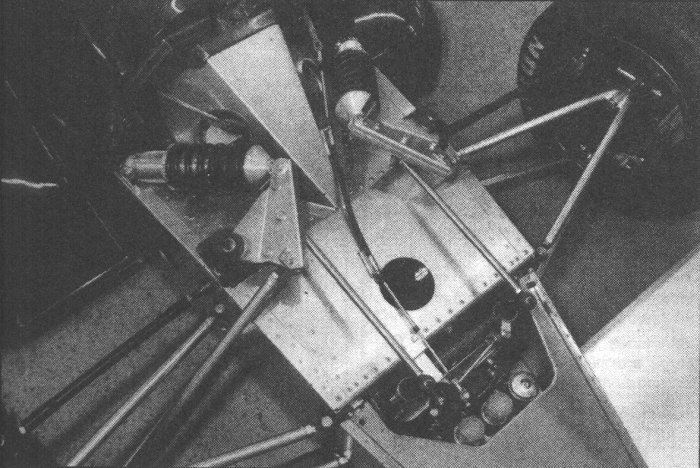

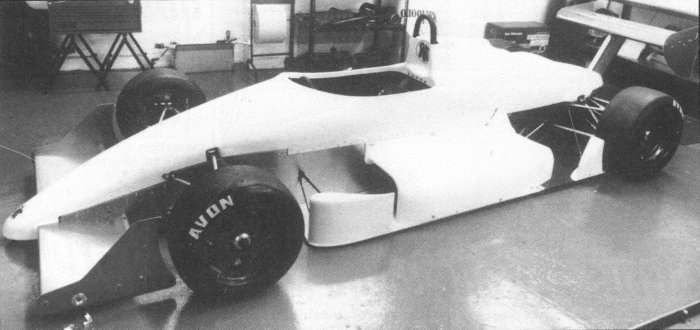
Once again the new RT32 looked very similar to the previous RT31 design but yet again it was substantially different on a closer examination. The most significant change was that for the first time Tauranac employed composite technology in one of his F3 cars. As in previous years aluminium honeycomb was used in the lower section of the tub but the top portion comprised of carbon fibre, the two sections being bonded together. The reason for using the two differing materials was given as offering the driver better protection in an accident. In addition a 110% increase in torsional rigidity was gained. Another major design change was to lower the engine installation by 30mm, this involved major modifications to the engine and drive train. All the major engine suppliers produced units with smaller flywheels and modified sumps whilst Hewland produced a new gearbox with a strengthened magnesium casing that also gave a 5kg weight saving. Following wind tunnel testing several minor changes were made to the body design, a shorter left-hand sidepod was fitted with a modified radiator and both pods were fitted with deflectors. The exhaust system ran up the centre of the engine cover to reduce drag, on the RT31 it had run outside the cover. The suspension geometry and dimensions were the same as the RT31 but variable pick up points were employed to allow for changes to suit different tyre types used in different countries. Finally larger brake discs and modified calipers were fitted.
Once again honours were shared in the UK between Ralt and Reynard with nine wins apiece although eight of the Reynard wins (and the Championship) went to JJ Lehto. Ralt had strength in depth and RT32 drivers finished second to sixth. In Japan Akihiko Nakaya took the crown in his RT32 and RT32s and 31s took the next four spots. France and Italy saw the Dallaras dominate whilst the minor championships of Austria went the the RT32 of Karl Wendlinger and Micke Johansson won again in Sweden with his RT31.
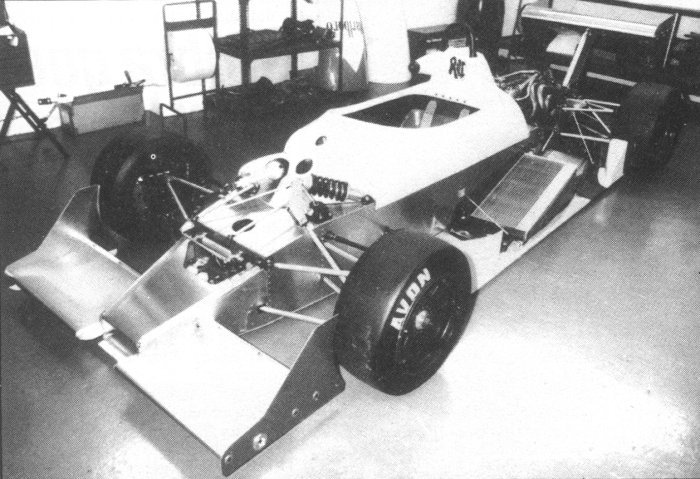


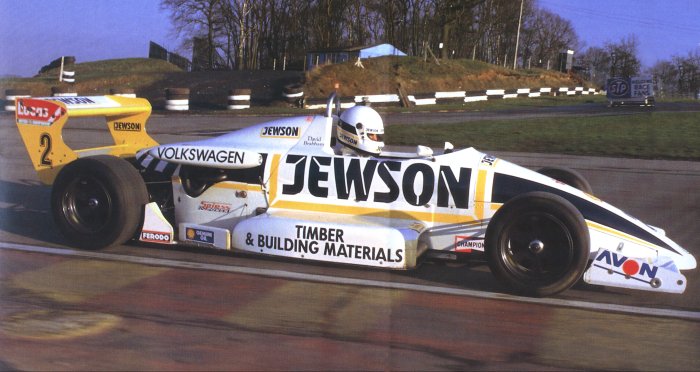
The RT33 was very much an evolution of the RT32, a lot of work was done in the wind tunnel to improve the aerodynamic efficiency and the side pods and engine cover were reprofiled. There was a significant change to the UK regulations with the introduction by tyre supplier Avon of radial instead of crossply rubber. This meant revisions to the suspension to suit the new tyres to get the maximum performance.
The changes to the car and the switch to radials certainly seemed to suit the RT33 and in the UK fourteen out of the sixteen races went the way of Ralt and Allan McNish took the championship. The first two places in the B Class went to the RT32. It was a similar story where there was a significant Ralt presence. In Germany Karl Wendlinger's RT33 took the honours, in Japan it was a RT33 1-2-3-4 with Masahiko Kageyama taking the championship. The other major championships went the way of either Reynard or Dallara.
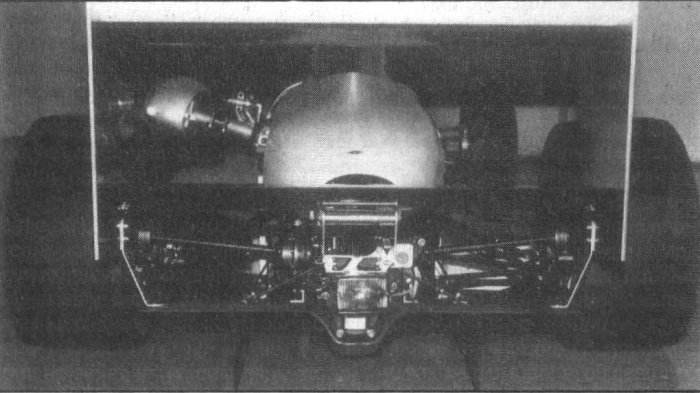

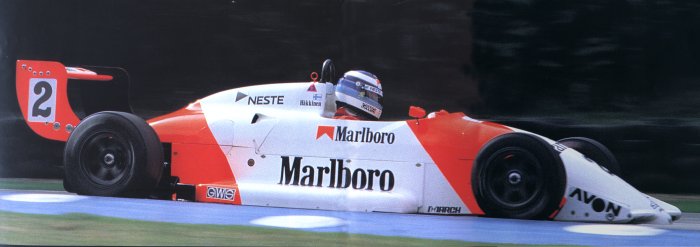
The RT34 was a tidied up version of the RT33 with a number of small but significant changes. The weight distribution was moved rearwards but in turn the engine was moved four inches forward which resulted in the centre-of-gravity moving forward. The stiffness of the tub was further increased whilst the nose section was reprofiled to make it more streamlined. Revised front uprights with side mounted calipers were fitted and the front and rear rocker operation was improved. Koni dampers were now used and the steering rack and anti-roll bar were fitted in front of the drivers feet. Finally the fuel system was moved to inside the fuel tank.
Front Track: 1403mm
Rear Track: 1321 mm
Wheelbase: 2892mm
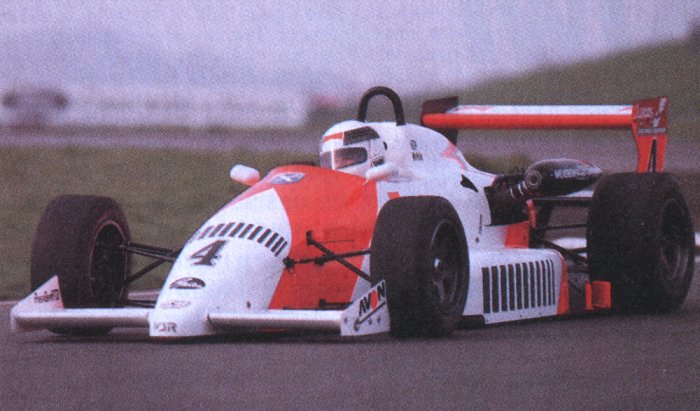
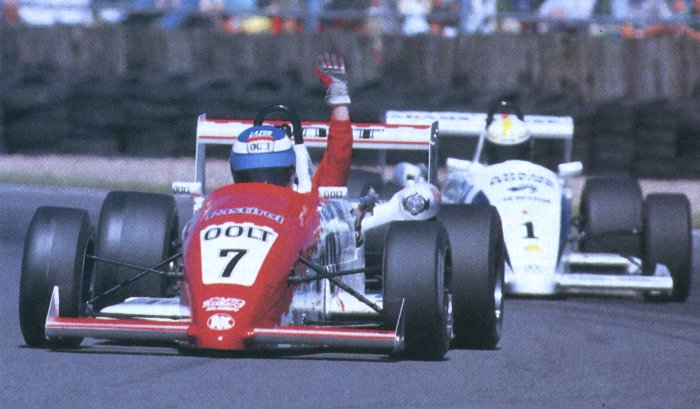


The RT35 continued the evolutionary theme that had been evident for the last two years. Most visible change was the adoption of twin side-mounted water radiators which meant the adoption of symmetrical sidepods for the first time since the RT3/84. A new method of bonding the aluminium honeycomb sandwich in the tub was used which made the chassis stiffer as well as reducing "peeling" in the event of an accident. The front of the chassis was reprofiled to aid the aerodynamics and a new rear underbody deflector was fitted. As a matter of interest at the time the car less engine retailed for £37,750 + 17.5% VAT.
It was a good year for Ralt, the British Championship saw a tight battle between the RT35s of Rubens Barrichello and David Coulthard with the Brazilian taking the title. In France Christophe Bouchet won in a RT33 from Olivier Panis who drove both a RT35 and A Dallara 391. RT35s took the top three spots in Germany with Dane Tom Kristensen finishing on top. In Italy Domenico Schiatarella was a close second in his RT35 to winner Giambattista's Dallara 391. TOM's took the laurels in Japan but RT35s were second and third whilst in the Sudam Championship the RT32 of Affonso Giaffone led a Ralt 1-2-3.
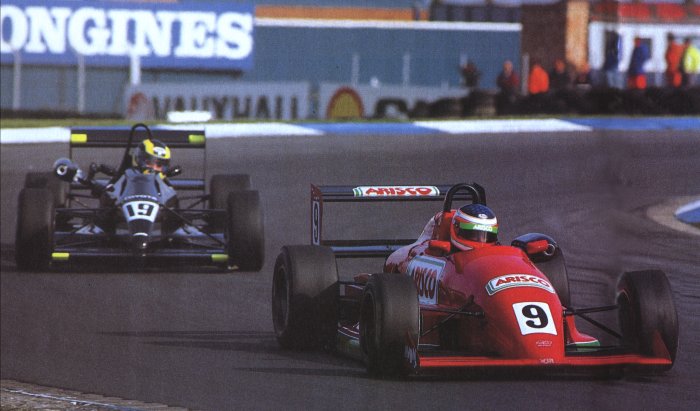
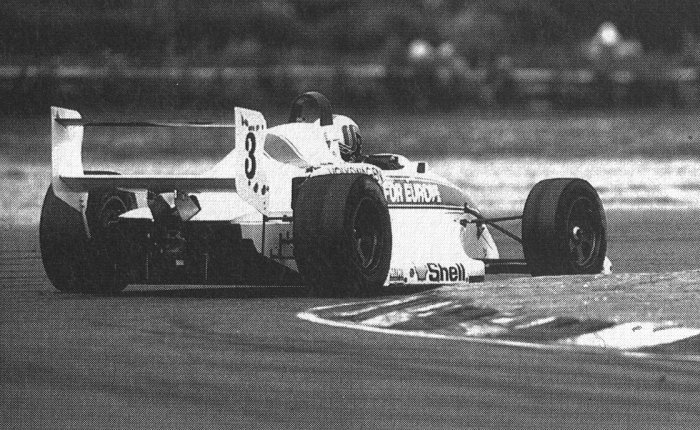

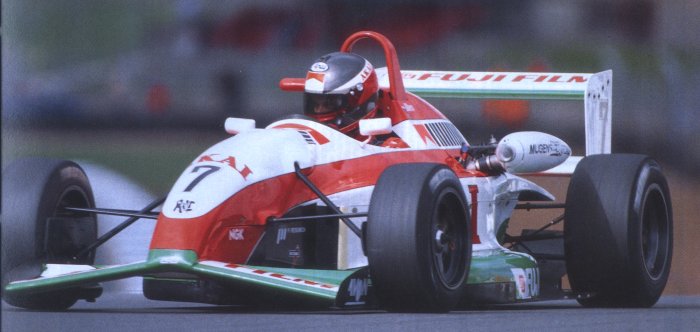
The RT36 , whilst still keeping the familiar Ralt look, was a big step forward in design terms. For the first time a F3 Ralt used a fully composite chassis rather than an aluminium honeycomb/carbon fibre mixture as before. Designer Andrew Thorby (who had designed the TOM's 031F) introduced a number of additional changes from the RT35. Most visually obvious change was the adoption of an anhedral nose, the sidepods were taller and waisted whilst the rear wing was more upright. The height of the rollhoop was increased and the rear bodywork was lowered and made wider and more all-enveloping. The exhaust system was lowered and angled while the rear dampers were mounted low at the rear of the sidepods. Towards the end of the season, initially in Japan, the sidepods were reprofiled removing the waisting and increasing the depth, the intention was to increase the top speed of the car. Occasionally cars with this sidepod modification were called RT36B.
Many teams in the F3 world opted to use the Reynard 923, a modified version of the successful 913, as they weren't sure how the first composite Ralt would go. The answer was it went very well especially in the early season but the Ralt cause wasn't helped by the tragic loss of their race winning driver Marcel Albers at the third round at Thruxton. Additionally designer Thorby left Ralt to join Van Diemen during the year and the Ralt slowly fell away leaving Reynard to clean up. Nevertheless Philippe Adams finished second in the British Championship whilst the RT36 took 2-3-4 in Germany and third in France. Anthony Reid took the Japanese Championship in a RT35 and Peter Aslund took a similar car to the Swedish crown. In South America the Sudam Championship fell to the RT33 of Marcos Gueiros.
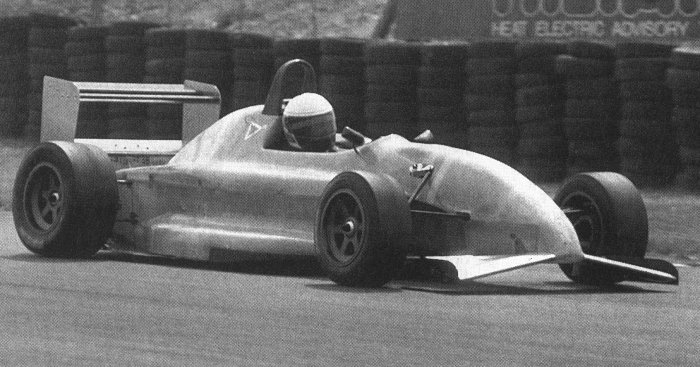
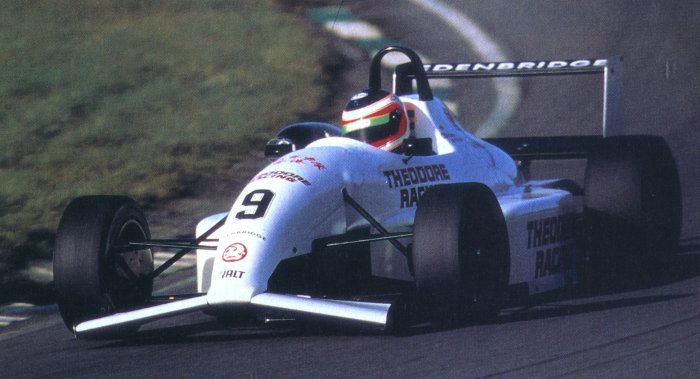


1993 would see the year when it all went horribly wrong for Ralt. The RT37 was intended to wrest the F3 crown back from Reynard and Dallara and it was advertised as a combination of the best bits of the RT35 and the RT36. The RT37 tub was a modified version of that used on the RT36, the rear suspension was new in an attempt to improve performance in high-speed corners (where it was felt the RT36 was lacking). The bodywork was extended to the rear of the diffuser to improve rear wing airflow. The sidepods resembled those used at the end of the year on the RT36 and the anhedral front wing was dropped as although efficient it was reckoned it caused too much drag.
Unfortunately the RT37 was terrible, it handled very badly in the corners, bounced horribly over bumps and was very slow in a straight line. The four who did race it switched to the new Dallara F393 as quickly as possible.
In an effort to stop the rot a new car was introduced, the Ralt 93C, presumably the March type number designation (March of course had owned Ralt for several years) was an effort to make people forget the RT37. The car was designed by Chris Radage, who had worked under Sergio Rinland on the Fondmetal GR02 F1 car. It copied much of the Dallara F393 design utilising a very slim chassis, low sidepods and an under-nose air intake. A lot of work was carried out in the wind tunnel in order to make the car as aerodynamically efficient as possible.
The inexperienced (and luckless) Jeremy Cotterill drove the 93C in the final two races of 1993 where he qualified and raced at the rear of the Class A cars. It seemed to have answered the problem of the RT37's lack of straight-line speed but it suffered from bad understeer and wasn't competitive.
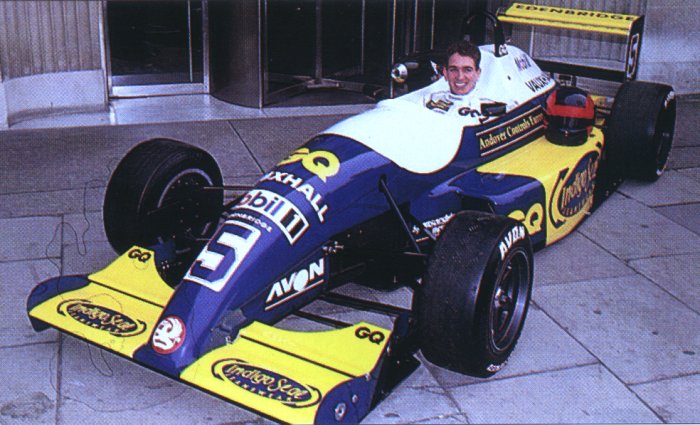
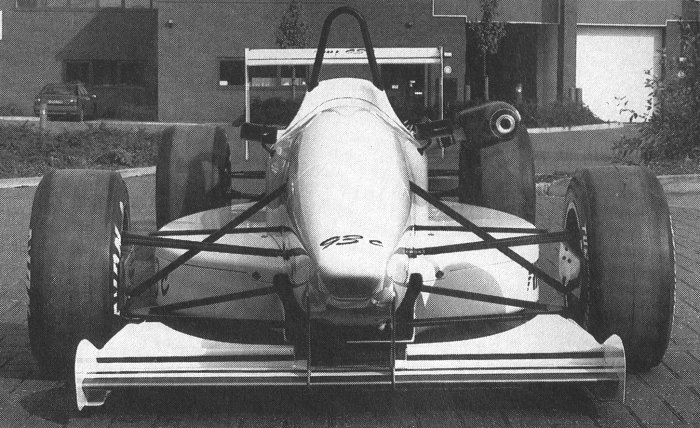
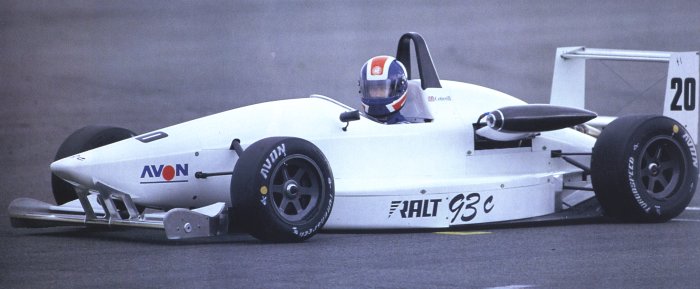

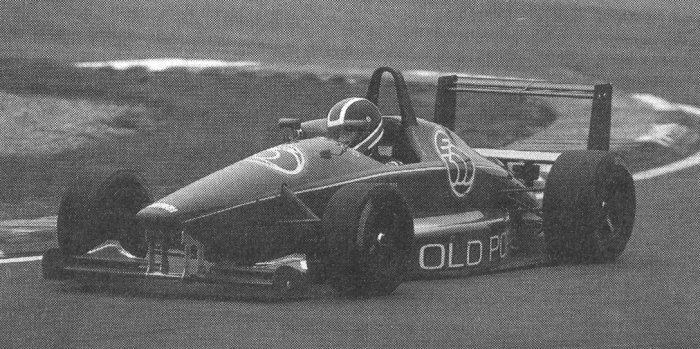
For 1994 it was the 94C which was basically the 93C with a few development tweaks. The experienced and quick Warren Hughes did the winter testing and some fast times were claimed. However come the racing season Hughes struggled with the ill-handling beast, it now suffered from snap oversteer and even Hughes was unable to get it on anything like a competitive pace.
After a handful of races the car was withdrawn and Ralt would disappear from F3 for 5 years.

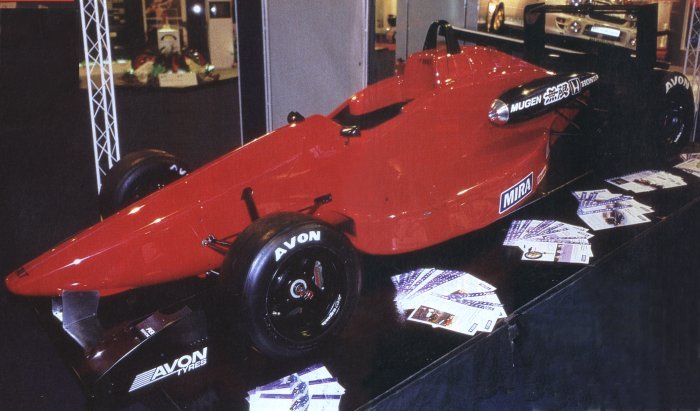
The Ralt name made a surprise F3 return in 1999 with the F399. The Ralt name, following the collapse of March, was now owned by a former partner of the company, Steve Ward. Ralt had been supplying cars for the US F Atlantic market but this ended when it switched to a one-make (Swift) championship. The F399 employed a completely new gearbox designed and built in-house at Ralt's. Intended to be much smaller,shorter and lighter than a Hewland it allowed for horizontal driveshafts to reduce driveshaft power losses and reduce the loadings on the internal gears allowing narrower gears to be fitted. The improved driveshaft location was achieved by using a step-up gear inside the casing and further allowed the fitting of a half-sized crown wheel and pinion. Fifth gear acted as an overdrive giving a greater choice of ratios between fourth and fifth. The entire unit featured a very strong casing to reduce gearbox flexing.
The car spent half the year testing with reports of breakages in the gearbox and suspension although there were claims it was getting closer to the pace of the Dallaras. From the middle of the year things went quiet and the car never raced.
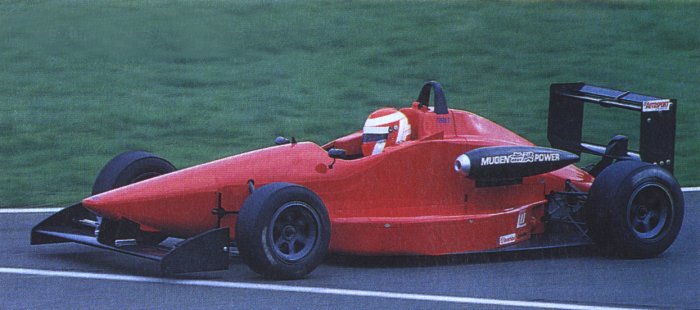

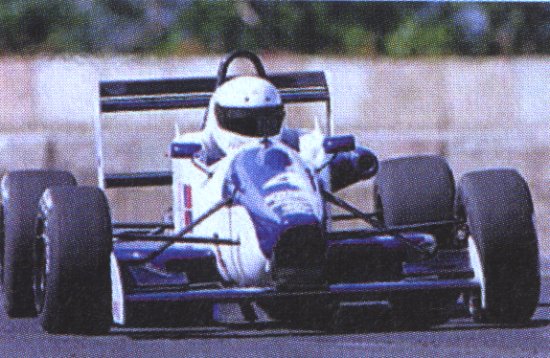
A new Ralt appeared in 2000, the F3/2000, although seemingly it was just the F399 renamed. It won a championship, unfortunately it was the newly inaugurated US F3 Championship which started late through lack of interest and then had further rounds cancelled for the same reason. The F3/2000 did win a couple of races including its first one but since there were only four other cars this didn't mean much. For the rest of the season it ran in the midfield of races that seemed to average six cars.

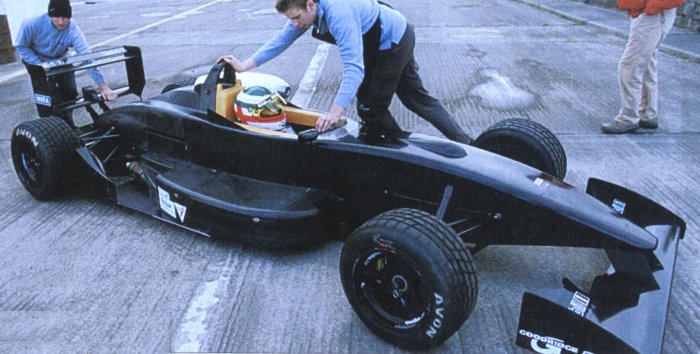
For 2002 the "new" Ralt team decided to launch a serious assault on the British F3 Championship and to this end a new car, the F302, was designed and built. The new car had a carbon-kevlar and aluminium honeycomb monocoque with pushrod suspension front and rear. A Ralt self-built six-speed sequential gearbox was fitted which was some 10kgs lighter than the Hewland unit fitted to the Dallaras. This design was very popular with the drivers who liked its speed and clean operation. Koni dampers were fitted front and rear.
Wheelbase: 2690mm
Front track: 1500mm
Rear track: 1430mm
Andy Priaulx drove the car in winter testing where it showed it wouldn't be disgraced. Matthew Gilmore drove the Team Avanti run F302 in the first half of the British Championship but results were not too encouraging with the car running in the bottom half of the field. Gilmore then left the team switching to Promatec where he drove a Dallara for the rest of the year. The F302 was not seen again during the year.
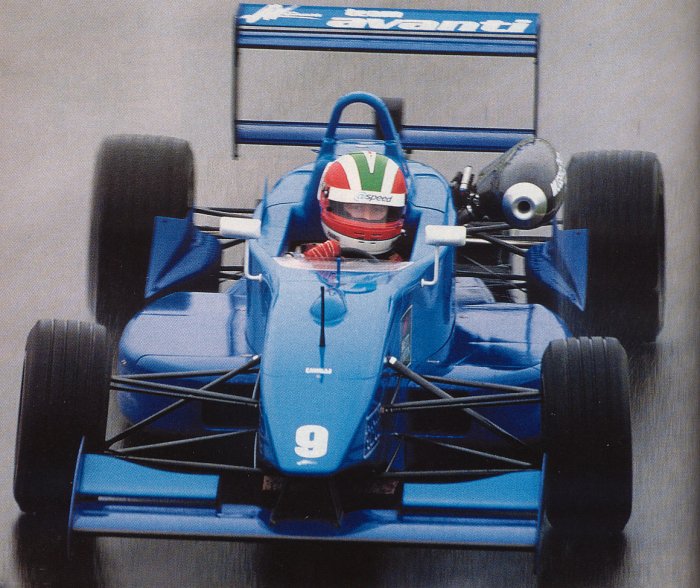


The F303 was an updated version of the F302 and was raced in the first few races of the year by Australian Will Power. Sadly once again the car was still mired in the bottom half of the field unable to trouble or even get close to the Dallaras. The car was then withdrawn and Ralt left Formula 3 not with a bang but with a whimper..
Drivers:
Please note that for some Ralt models, especially the RT3, race reports frequently listed the car simply as its basic type number e.g. RT3 without any indication as to its year of manufacture.
1975
RT1 Luigino Grassi, Roberto Marazzi, Larry Perkins, Terry Perkins, Bertram Schäfer.
1976
RT1 Hakan Alriksson, Ian Ashley, Patrick Bardinon, Paul Bernasconi, Geoff Brabham, Helmut Bross, Eje Elgh, Ian Flux, Boy Hayje, Hanspeter Hess, Norbert Hutter, Werner Klein, Wolfgang Klein, Knut-Holger Lehmann, Gaudonzio Mantova, Oscar Pedersoli, Alessandro Pessenti-Rossi, Erkki Salminen, Bertram Schäfer, Detlef Schmickler, Walter Schöch, Clas Sigurdsson, Ulf Svenson, Thorkild Thyrring, Ole Veljlund.
1977
RT1 Daniele Albertin, Hakan Alriksson, Elio de Angelis, Paul Bernasconi, Tommy "Slim" Borgudd, Geoff Brabham, Gianfranco Brancatelli, Helmut Bross, Roberto Campominosi, Luis Canomanuel, Thorbjörn Carlsson, Sandro Cinotti, Armin Conrad, Eje Elgh, Roberto Farnetti, Don Farthing, Werner Fischer, Fernando Jorge, Wolfgang Locher, Thomas von Löwis of Menar, Roberto Manzoni, Piero Necchi, John Neilsen, Jac Nelleman, Filippo Niccolini, Anders Olofsson, Guido Pardini, Mario Pati, Oscar Pedersoli, Nelson Piquet, Orazio Ragaioli, Marzio Romano, Bertram Schäfer, Walter Schöch, Clas Sigurdsson, Henrik Spellerberg, Fernando Sperafico, Ulf Svenson, Thorkild Thyrring, Ole Veljlund, Leonardo Verrelli, Juan Villacieros, Derek Warwick.
1978
RT1 Daniele Albertin, Mauro Baldi, Tommy "Slim" Borgudd, Geoff Brabham, Helmut Bross, Roberto Campominosi, Guido Cappellotto, Ingvar Carlsson, Thorbjörn Carlsson, Jorge Caton, Andrea de Cesaris, Enzo Coloni, Ricardo Galiano, Jan Lammers, Wolfgang Lechner, Thomas von Löwis of Menar, Arie Luyendijk, Roberto Manzoni, Louis Maulini, John Neilsen, Anders Olofsson, Guido Pardini, Mario Pati, Oscar Pedersoli, Nelson Piquet, Huub Rothengatter, Bertram Schäfer, Gary Scott, Phil Silverstone, Hanspeter Stoll, Ulf Svenson, Thorkild Thyrring, Erico Uncini, Fermin Velez, Derek Warwick, Fridolin Wettstein, Rob Wilson.
1979
RT3
Georg Bellof, Roberto Campominosi, Luciano Pavesi, Eliseo Salazar.
RT1
Kenny Acheson, Daniele Albertin, Mauro Baldi, Georg Bellof, Michael Bleekmolen, Tommy "Slim" Borgudd, Thierry Boutsen, John Bright, Hans-Georg Burger, Roberto Campominosi, Guido Cappellotto, Thorbjörn Carlsson, Jorge Caton, Bruno Corradi, Urs Dudler, Jon Hedstrom, Placido Iglesias, Fernando Jorge, Thomas Kaiser, Walter Lechner, Frank Marvel, Louis Maulini, Philipp Müller, Luciano Pavesi, Oscar Pedersoli, Jean-Pierre Rochat, Carlo Rossi, Eliseo Salazar, Trevor Templeton, Bengt Tragardh, Rob Wilson.
1980
RT3 Daniele Albertin, Harald Brutschin, Hans-Georg Bürger, Guido Cappellotto, Frank Jelenski, Stefan Johansson, Eddie Jordan, Wolfgang Klein, Jun Takahashi, Rob Wilson.
RT1 Leo Anderson, Eddy Bianchi, Jackob Bordoli, Terry Gray, David Humphreys, Tomas Kaiser, Olar Ronningen, John Village, Marcel Wettstein.
1981
RT3/81 Enrique Benamo, Mike Blanchet, Michael Bleekemolen, Raul Boesel, Enzo Coloni, Cliff Hansen, Fred Krab, David Leslie, Roberto Moreno, Kees Nierop, Mike O'Brian, Hitoshi Ogawa, Brett Riley, Shoruku Sasaki, Klaus Schinkel, Dave Scott, David Sears, Ian Shaw, Thierry Tassin, Bengt Tragardh, Richard Trott, James Weaver.
RT3 Jonathan Palmer, Jun Takahashi, James Weaver.
RT3 (year unknown) Alain Abdel, Stefan Bellof, Harald Brutschin, Umberto Calvo, Guido Cappellotto,Günter Gebhardt, Frank Jelinski, Thomas Kaiser, Peter Katranksi, Herve Roger, Peter Schindler.
RT1 Leo Andersson, Manfred Hebben, Aikawa Hiromitsu, Takayuko Nakahama, Olav Ronningen, Norimasa Sakamoto, Fridolin Wettstein, Jakob Wettstein, Peter Wisskirchen.
?
Rolf Egger, Philipp Müller.
1982
RT3/82 Enrique Benamo, Martin Brundle, Tommy Byrne, Paolo Giangrossi, Enrique Mansilla, John Nielsen, Bengt Tragardh, James Weaver.
RT3/81 Juan-Carlos Abella, Guido Capellotto, Fredy Eschenmoser, Kengo Nakamoto, Roberto Moreno, Denis Morin, Bernard Santal, Jo Zeller.
RT3 (year unknown) Leo Andersson, Peter Argetsinger, Helmut Bross, Harald Brutschin, Thorbjörn Carlsson, Enzo Coloni, Philippe Colonna, Bruno Corradi, Dave Coyne, Bruno Eichmann, Cor Euser, Calvin Fish, Henning Hagenbauer, Manfred Hebben, Dieter Heinzelmann, Mario Hytten, Ake Jansson, Davy Jones, Michael Kahnt, Thomas Kaiser, Harri Kangas, Peter Katsarski, Walter Lechner, Tim Lee-Davey, Erich Leitner, David Leslie, Pierre-Alain Lombardi, Pierluigi Martini, Kris Nissen, Nicky Nufer, Hans-Peter Pandur, Pierre Petit, Johann Reindl, Luiz Schaffer, Dave Scott, David Sears, Rudi Seher, Alfonso Toledano, Richard Trott, Fritz Vogel, Mike White, Joachim Winkelhock, Peter Wisskirchen.
RT1 Hiromitsu Aikawa, Werner Eckert, Georges A. Hedinger, Heinrich Heintz, Herbert Lingmann, Karl Schäfer, Arnold Wagner, Fridolin Wettstein, Tomiko Yoshikawa.
? Bernard Leisi.
1983
RT3/83 Carlos Abella, Allen Berg, Gerhard Berger, Martin Brundle, Max Busslinger, Tommy Byrne, Ivan Capelli, Enzo Coloni, Johnny Dumfries, Calvin Fish, Patrick Gonin, Ronnie Grant, Tommy Grunnah, David Hunt, Mario Hytten, Davy Jones, Eric Lang, Tim Lee-Davey, Pierluigi Martini, Ruggero Melgrati, Cathy Muller, John Nielsen, Sakae Obata, Tarou Oomi, Emanuele Pirro, Roberto Ravaglia, Bernard Santal, Ayrton Senna, Didier Theys, Kurt Thiim, Carlton Tingling, Richard Trott, James Weaver.
RT3/82 Leo Andersson, Allen Berg, Ronnie Grant, Tim Lee-Davey, Johnny Dumfries, Mario Hytten, Carlton Tingling, Tony Trevor, Martin Wood.
RT3/81-82 Mike Blanchet.
RT3/81 Yoshimasa Fujiwara, Tommy Grunnah.
RT3/80 Gerry Amato.
RT3 (year unknown) "Albin", Harald Becker, Bodo Beil, Enrique Benamo, Jakob Bordoli, John Bosch, Helmut Bross, Harald Brutschin, Thorbjörn Carlsson, Fernando Cazzaniga, Urs Duddler, Marc Duez, Fredy Eschenmoser, Laurent Ferrier, Heinz Gilges, Manfred Hebben, Dieter Heinzelmann, François Hesnault, Thomas Kaiser, Harri Kangas, Peter Katsarski, Hanspeter Kaufmann, Günther Köbele, Claudio Langes, Walter Lechner, Gilles Lempereur, Nettan Lindgren, Stefano Livio, Karl-Christian Lück, Gerd Lünsmann, Heikki Mustonen, Nicky Nufer, Peter Oberndorfer, Hakan Olausson, Hans-Peter Pandur, Ralf Rauh, Johann Reindl, Hervé Roger, Alessandro Santin, Paul Schild, Lars Schneider, Frank Schmickler, Alfredo Sebastiani, Enzo Sebastiani, Johnny Sigfridsson, Marc Sourd, Marco Spinelli, Bartl Stadler, Hasse Thaung, Jan Thoelke, Franz Tost, Enrico Uncini, Fritz Vogel, Jürg Vogt, Walter Voulaz, Ruedi Wegmann, Volker Weidler, Karl-Heinz Wieschalla, Joachim Winkelhock, Peter Wisskirchen, Jo Zeller.
RT1 Heinrich Heintz, Bernard Leisi, Gerd Lünsmann, Axel Ress, Karl-Heinz Soll, Arnold Wagner.
? Norbert Gapp.
1984
RT3/84 Carlos Abella, Leo Andersson, Marco Apicella, Allen Berg, Gerhard Berger, Adrian Campos, Ross Cheever, Dave Coyne, Johnny Dumfries, Christian Estrosi, Gary Evans, Calvin Fish, Darilo Frassoni. Andrew Gilbert-Scott, Alfred Heger, David Hunt, Harald Huysman, Mario Hytten, Paul Jackson, Neto Jochamowitz, Davy Jones, Eric Lang, Claudio Langes, Cosimo Lucchesi, Ruggero Melgrati, Cathy Muller, John Nielsen, Kris Nissen, Paul Radisich, Bret Riley, Luis Sala, Bernard Santal, Alessandro Santin, Dave Scott, Marc Simon, Russell Spence, Gabriele Tarquini, Hasse Thaung, Luis Villami, Walter Voulaz, James Weaver, Peter Wisskirchen, Rob Wilson, Emilio Zapico.
RT3/83 Ross Cheever, Johnny Dumfries, Keith Fine, Grey Hedley, Paul Jackson, Steve Kempton, Akio Morimoto, Sakae Obata, Tarou Oomi, Kouji Satou, Tony Trevor, Volker Weidler, Jo Zeller.
RT3/82 Steve Bradley, Ronnie Grant, Bernard Horwood, Sigiurd Krane, Hakan Olausson, "Anton Sobriquet", Carlton Tingling.
RT3/81 Mike Blanchet, John Bullock, Masashi Kitagawa, Richard Morgan, Kouzou Okumura.
RT3/80 Dave Button, Hideo Fukuyama.
RT3 (year unknown) Tuomo Alitalo, Beat Amacher, Steven Andskär, Eric Bachelart, Gianni Bianchi, Jakob Bordoli, Harald Brutschin, Alex Caffi, Thorbjorn Carlsson, Hendrik ten Cate, Thomas Danielsson, Dominique Delestre, Peter Deuscher, Michael Dorner, Urs Dudler, Marc Duez, Dominique Dupuy, Eberhard Ernst, Fredy Eschenmoser, Ernst Franzmaier, Heinz Gilges, Bruno di Gioa, Manfred Hebben, Altfrid Heger, Thomas Holert, Ake Jansson, Peter Katsarski, Hanspeter Kaufmann, Jari Koiranen, Franz Konrad, Walter Kupferschmid, Bernard Leisi, Gilles Lempereur, Walter Lechner, Nettan Lindgren, Leif Lindstrom, Thomas von Löwis, Karl-Christian Lück, Gerd Lünsmann, Claude Marcq, Heikki Mustonen, Mikael Nabrink, Nicky Nufer, Jari Nurminen, Stefan Oberndorfer, Christer Offason, Hans-Peter Pandur, Ronnie Peterson, Eric van de Poele, Ralf Rauh, Franco Scapini, Karl Schäfer, Lars Schneider, Gernot Sirrenburg, Reima Södermann, Karl-Heinz Soll, Bartl Stadler, Gianfranco Tacchino, Kurt Thiim, Thorkild Thyrring, Franz Tost, Gérard Vallat, Ruedi Wegmann, Jon Warmland, Karl-Heinz Wieschalla.
RT1 Heinrich Heintz, Axel Ress.
1985
RT30 Kouichi Akagi, Steven Andskar, Frank Biela, Franz Binder, Enrico Bertaggia, Adrian Campos, "Pierre Chauvet“, Ross Cheever, Dominique Delestre, Gary Evans, Keith Fine, Jo Foster, Ernst Franzmaier, Mark Galvin, Andrew Gilbert-Scott, Mauricio Gugelmin, Steve Harrington, Harald Huysman, Phil Kempe, Gerrit van Kouwen, Karl-Christian Lück, Giorgio Montaldo, Heikki Mustonen, Kris Nissen, Christer Offason, Jörg van Ommen, Sami Pensala, Manuel Reuter, Luis Sala, Kouji Satou, Willi Schuster, Dave Scott, Russell Spence, Bartl Stadler, Delia Stegemann, Aguri Suzuki, Gianfranco Tacchino, Franz Theuermann, Alfonso Toledano, Michel Trollé, Peter Wisskirchen, Graham de Zille.
RT3/84 Paul Belmondo, Giles Butterfield, Wayne Earnshaw, Mark Goddard, Ronnie Grant, Godfrey Hall, Ross Huckenhull, Jun'ichi Ikura, Steve Kempton, Ian Khan, Rodolphe Koentges, Richard Morgan, Cathy Muller, Seiichi Okada, Dick Parsons, Kazushi Sano, Dave Scott, "Anton Sobriquet", Paul Stott, Ray Stover, James Tolerton, Sean Walker, Rob Wilson, Mike Wright.
RT3/83 Hendrik ten Cate, Kevin Jones, Tarou Oomi, Terry Pudwell, Fumiko Shinoda, Carlton Tingling, Jo Zeller.
RT3 (year unknown) Jorma Airaksinen, Beat Amacher, Marco Apicella, Eric Bachelart, Heinz Beißler, Jakob Bordoli, Peter Deuscher, Urs Dudler, Horst Fendrich, Jürgen von Gartzen, Richard Hamann, Altfrid Heger, Bruno Ilien, Paul Jackson, Wolfgang Jandl, Ulf Johansson, Peter Katsarski, Hanspeter Kaufmann, Wolfgang Kaufmann, Jari Koiranen, Rolf Kuhn, Walter Lechner, Gilles Lempereur, Thomas von Löwis, Gerd Lünsmann, Heikki Myllymaa, Stefan Neuberger, Hitoshi Nishiyama, Jari Nurminen, Georg Pacher, Philippe Pechberty, Manuel Reuter, Hervé Roger, Uwe Schäfer, Willi Schuster, Gernot Sirrenburg, Reima Soderman, Ernst Thurnherr, Alfonso Toledano, Franz Tost, Klaus Trella, Arnold Wagner, Wilhelm F. Weber, Wolfgang Wendlinger, Jo Zeller.
RT1 Hiroyuki Makino, Shinji Kameda.
? Steven Andskar, Claes Goran Back, Niclas Blom, Sonny Johansson, Sigurd Krane, Joakim Lindstrom, Leif Lindstrom, Christer Offason, Hakan Olausson, Ronnie Petersson, Hasse Thaung.
1986
RT30/86 Akio Morimoto, Julian Bailey, Gary Brabham, Ross Cheever, Tim Davies, Martin Donnelly, Cor Euser, Keith Fine, Mark Galvin, Peter Hardman, Johnny Herbert, Damon Hill, Ross Hockenhull, David Hunt, Harald Huysman, Syuuji Hyoudou, Paul Jackson, Kouichi Iwaki, Gerrit van Kouwen, Joachim Lindstrom, Massimo Monti, Kris Nissen, Akinori Okada, Hakan Olausson, Tetsuya Oota, Eric van de Poele, Paul Radisich, Anthony Reid, Maurizio Sandro Sala, Syuuroku Sasaki, Kouji Satou, Dave Scott, Dave Simpson, Graham de Zille.
RT30/85 Kouichi Akagi, Guido Basile, Mike Donovan, Gary Dunn, Jun'ichi Ikura, Kristyan Ingram, Steve Kempton, Ian Khan, Alastair Lyall, Takamasa Nakagawa, Osamu Nakajima, Akihiko Nakaya, Makoto Nakayama, Shigeki Naruse, Tarou Oomi, Lee Perkinson, Steve Petitt, James Shead, Paul Stott, Sean Walker, Gary Ward, Adrian Wilmott.
RT30 (year unknown) Franz Abraham, Henrik Barkstrom, Sigi Betz, Franz Binder, Rinaldo Capello, Artur Deutgen, Frédéric Delavallade, Bruno Eichmann, Peter Elgaard, Stefan Fricke, Jürgen von Gartzen, Richard Hamann, Dieter Heinzelmann, Harald Huysman, Wolfgang Jandl, Micke Johansson, Michael Kahnt, Peter Katsarski, Wolfgang Kaufmann, Thomas von Löwis, Martin Ludwig, Gerd Lünsmann, Kris Nissen, Sami Pensala, Michael Roppes, Frank Schmickler, Willi Schuster, Gernot Sirrenburg, Delia Stegemann, Hasse Thaung, Franz Theuermann, Wilhelm F.Weber, Peter Wisskirchen, Peter Zakowski.
RT3/84 Ronnie Grant, Lee Perkinson.
RT3/82 Simon Davey.
RT3 (year unknown) Jorma Airaksinen, Masako Fujikawa, Hideaki Hagiwara, Masaru Isomura, Masao Minamino, Heikki Myllymaa, Hitoshi Nishiyama, Franz-Josef Prangemeier, Renate Sieger, Johann Stelzer, Arnold Wagner, Mitsumasa Watanabe, Karl-Heinz Wenig, Uwe Wolpert.
1987
RT31 Didier Artzet, Eric Bachelart , Eric Bernard, Gary Brabham, Eric Cheli, Erik Comas, Jean-Denis Deletraz, Paulo Delle Piane, Martin Donnelly, Stefan Fricke, Yoshimasa Fujiwara, Hideo Fukuyama, Bertrand Gachot, Hideaki Hagiwara, Yukihiro Hane, Damon Hill, Syuuji Hyoudou, Kouichi Iwaki, Micke Johansson, Masahiko Kageyama, Takayuki Kinoshita, Jean-Noel Lanctuit, Gerd Lünsmann, Andre Malherbe, Michele Minutoto, Massimo Monti, Cathy Muller, Hitoshi Ogawa, Eric van de Poele, Roland Ratzenberger, Michael Roppes, Victor Rosso, Maurizio Sandro-Sala, Frank Schmickler, Dave Scott, Delia Stegemann, Mitsumasa Watanabe, Hisashi Yokoshima, Peter Zakowski, Graham de Zille.
RT30/86 Ross Cheever, Yukihiro Hane, Syunji Kasuya, Ian Khan, Takayuki Kinoshita, Eisaku Kitaguchi, Yoshimitsu Kondou, Osamu Nakajima, Sadafumi Nakajima, Akihiko Nakaya, Akinori Okada, Keiji Onaya, Kouji Satou, Isao Shibata, Gary Ward.
RT30/85 Takamasa Nakagawa, Osamu Nakajima, Isao Shibata.
RT30 (year unknown) Peter Albertson, Henrik Barkström, Franz Binder, Peter Bohlin, Peter Boutwood, Rowan Dewhurst, Mike Donovan, Stefan Fricke, Kurt Gewinnus, Ronnie Grant, John Hotchkiss, Patrick Jerome, Tim Jones, Ian Khan, Eddie Kimbell, Martin Koller, Martin Ludwig, Alastair Lyall, Alain Menu, Christer Offason, Ian Shaw, James Shead, Paul Spooner, Mercedes Stermitz, Carlton Tingling, Julian Westwood, Uwe Wolpert.
RT3/84 Jun Andou.
RT3 (year unknown) Gerhard Claus, Klaus Lepp, Yasuharu Nakajima, Martin Wagenstetter.
1988
RT32 Pierre Bennehard, Gary Brabham, Martin Donnelly, Gary Dunn, Kazuo Hada, Masakazu Hamana, Damon Hill, Ross Hockenhull, Syuuji Hyoudou, Jun'ichi Ikura, Eddie Irvine, Masahiko Kondou, Peter Kox, Masahiro Matsunaga, Alain Menu, Kiyoshi Misaki, Akihiko Nakaya, Makoto Nakayama, Ryuuichi Natsukawa, Hitoshi Ogawa, Akinori Okada, Maurizio Sandro-Sala, Syuuroku Sasaki, Kouji Satou, Dave Scott, Antonio Simoes, David Velay, Mitsumasa Watanabe, Karl Wendlinger.
RT31 Andy Bovensiepen, David Brabham, Claude Degremont, Martin Donnelly, Stefan Fricke, Sen'ichi Fujino, Kazuo Hada, Hideaki Hagiwara, Naoki Hattori, Syuuji Hyoudou, Jun'ichi Ikura, Kiyoshi Itou, Naozumi Itou, Micke Johansson, Masashi Kabuyama, Masahiko Kageyama, Katsutomo Kaneishi, Gerrit van Kouwen, Frank Krämer, Takuya Kurosawa, Shigeki Matsui, Hiroyuki Matsushita, Katsuhiko Mochiki, Eiki Muramatsu, Katsumi Muraoka, Akinori Okada, John Penfold, John Robinson, Maurizio Sandro-Sala, Kouji Satou, Isao Shibata, Tomohiko Sunako, Eiichi Tajima, Phillip Verellen, Naoki Wakasugi, Mitsumasa Watanabe, Logan Wilms, Eiji Yamada, Yuuji Yamamoto.
RT30/85 Ronnie Grant.
RT30 (year unknown) Guido Basile, Peter Boutwood, Otmar Fassold, Naoki Hattori, Tamihide Katano, Yoshimitsu Kondou, Trond-Aage Krosby, Tsuneyoshi Mon'nai, Sakae Obata, Walter Zischg.
RT3 (year unknown) Jun Andou, Andras Kövesdan, Herbert Prügl.
1989
RT33 Philippe Adams, Gary Ayles, David Brabham, John Estupinan, Takahiko Hara, Naoki Hattori, Derek Higgins, Naozumi Itou, Masahiko Kageyama, Katsutomo Kaneishi, Syunji Kasuya, Masahiko Kondou, Takuya Kurosawa, Shigeki Matsui, Alain Menu, Alan McNish, Fuminori Mizuno, Eiki Muramatsu, Ryuuichi Natsukawa, Steve Robertson, Keiichi Sakamoto, Kouji Satou, Antonio Simoes, Yoshiyasu Tachi, Minoru Tanaka, Hisashi Wada, Meik Wagner, Paul Warwick, Karl Wendlinger, Julian Westwood, Alessandro Zanardi.
RT32 Giovanna Amati, Ken Bowes, Augusto Cesario, Dominic Chappell, Masakazu Hamana, Naoki Hattori, Syuuji Hyoudou, Akira Ishikawa, Katsutomo Kaneishi, Takayuki Kinoshita, Masahiko Kondou, Shin'ya Maeda, Kiyoshi Misaki, Morio Nitta, Sakae Obata, Takayuki Ooi, Fernando Plata, Warwick Rooklyn, Kouji Satou, Kenta Shimamura, Tomohiro Souma, Tomohiko Sunako, Atsushi Tanaka, Tetsuya Tanaka, Hisashi Wada, Mitsumasa Watanabe, Chad Wentzel, Shinji Yoshikawa.
RT31 Yoshimichi Fujinaga, Hideaki Hagiwara, Genji Hashimoto, Tomoyuki Hosono, Naozumi Itou, Fuminori Mizuno, Tsuneyoshi Mon'nai, Akio Morimoto, Sadafumi Nakajima, Yukio Okamoto, Hakan Olausson, Seiji Oomura, Walter Perfler, Joachim Ryschka, Eiichi Tajima, Yoshinari Takasugi, Souichirou Tanaka, Tetsufumi Toda, Naoki Wakasugi.
RT30/86 Tsuneyoshi Mon'nai.
RT30 (year unknown) Otmar Fassold, Volkmar Löw, Wolfgang Petutschnig.
RT3 (year unknown) Syun'ichi Inoue, Herbert Prügl.
1990
RT34 Gary Ayles, Thorbjörn Carlsson, Eric Cheli, Bernard Dolan, Christian Fittipaldi, Mitsuo Fujimura, Yoshimichi Fujinaga, Ken'ichirou Fujinuma, Hideo Fukuyama, Naohiro Furuya, Kanemitsu Gondou, Markus Gutjahr, Hideaki Hagiwara, Osamu Hagiwara, Mika Hakkinen, Yukihiro Hane, Eric Helary, Pekka Herva, Marc Hessel, Derek Higgins, Jun'ichi Ikura, Akira Ishikawa, Naozumi Itou, Thomas Johansson, Masami Kageyama, Syunji Kasuya, Mitsutake Koma, Masahiko Kondou, Takuya Kurosawa, Ellen Lohr, Shin'ya Maeda, Jonathan McGall, Shigeki Matsui, Kiyoshi Misaki, Fuminori Mizuno, Kenji Moriya, Yvan Muller, Eiki Muramatsu, Takamasa Nakagawa, Sadafumi Nakajima, Ryuuichi Natsukawa, Masayoshi Nishigaito, Hiromi Nishizawa, Hideki Noda, Akinori Okada, Yukio Okamoto, Niko Palhares, Otto Rensing, Victor Rosso, Rickard Rydell, Mika Salo, Susumu Shinoduka, Hans Simonsson, Paul Stewart, Kinji Suzuki, Yoshiyasu Tachi, Eiichi Tajima, Youji Takahashi, Kazuaki Takamura, Minoru Tanaka, Tetsuya Tanaka, Tetsufumi Toda, Paul Warwick, Marco Werner, Hisashi Wada, Julian Westwood, Hisashi Yokoshima, Jo Zeller.
RT33 Philippe Adams, Laurent Aiello, Luca Badoer, Dominic Chappell, Yoshihiro Daimonji, Amato Ferrari, Yoshihisa Fujita, Naohiro Furuya, James Gurney, Osamu Hagiwara, Naoki Hattori, Steve Hepworth, Yasutaka Hinoi, Tomoyuki Hosono, Akira Ishikawa, Thomas Johansson, Masami Kageyama, Kouichi Kashiwabara, Tooru Katou, Nagao Kitade, Peter Kox, Robert Mears, Fuminori Mizuno, Satoshi Motoyama, Ryuuichi Natsukawa, Akinori Okada, Yukio Okamoto, Tadashi Okunuki, Kouzou Orita, Fernando Plata, Charles Rickett, Steve Robertson, Victor Rosso, Claes Rothstein, Darren Shaw, Susumu Shinoduka, Kazuaki Takamura, Tetsuya Tanaka, Syuuhei Taniguchi, Tetsufumi Toda, Keiichi Tsuchiya, Hisashi Wada, Hisashi Yokoshima, Flurin Zegg.
RT32 Takeshi Asami, Steve Bradley, Augusto Cesario, Dominic Chappell, Yoshihiro Daimonji, Pedro Diniz, Haruki Fujimura, Néstor Gurini, Tsuneyoshi Mon'nai, Kiyoshi Nakazawa, Osvaldo Negri, Akinori Okada, Kuniomi Sakai, Juan Serda, Atsushi Tanaka, Souichirou Tanaka, Jon Warmland.
RT31 Manfred Banzer, Kanemitsu Gondou, Kiyoshi Nakazawa, Walter Perfler, Joachim Ryschka.
RT30 (year unknown) Günter Aberer, Volkmar Löw, Tomas Spöttl.
RT3 (year unknown) Josef Tarmann.
1991
RT35 Philippe Adams, Marcel Albers, Hiroyuki Aoki, Rubens Barrichello, Olivier Beretta, Paulo Carcasci, Paolo Coloni, Jose Cordova, David Coulthard, Laurent Daumet, Pedro Diniz, Ludovic Faure, Yoshimichi Fujinaga, Jordi Gene, Guillaume Gomez, Kanemitsu Gondou, Yukihiro Hane, Takahiko Hara, Marc Hessel, Tomoyuki Hosono, Kaoru Iida, Takuji Ishida, Akira Ishikawa, Naozumi Itou, Masami Kageyama, Tatsuhiko Kanaumi, Kenji Kanehisa, Katsutomo Kaneishi, Masahiko Kondou, Tom Kristensen, Linus Lundberg, Hidetoshi Mitsusada, Akio Morimoto, Satoshi Motoyama, Takamasa Nakagawa, Sadafumi Nakajima, Ryuuichi Natsukawa, Eduar Merhy Neto, Masyoshi Nishigaito, Akira Noda, Hideki Noda, Keiichi Ogawa, Akinori Okada, Yukio Okamoto, Klaus Panchyrz, Olivier Panis, Anthony Reid, Andre Ribeiro, Steve Robertson, Kouji Satou, Ryuutarou Sawada, Eiichi Sawanobori, Mimmo Schiattarella, Shinsuke Shibahara, Kenta Shimamura, Takeshi Souda, Tomohiko Sunako, Eiichi Tajima, Kouji Takahashi, Kazuaki Takamura, Tetsuya Tanaka, Tetsufumi Toda, Keiichi Tsuchiya, Marcello Ventre, Jacques Villeneuve, Eugenio Visco, Marco Werner, Shin'ichi Yamaji, Hisashi Yokoshima, Alex Zampedri, Jo Zeller.
RT34 Steve Arnold, Olivier Beretta, Sandy Brody, Yoshihisa Fujita, Pekka Herva, Mikke van Hool, Tomoyuki Hosono, Syuuji Hyoudou, Tatsuhiko Kanaumi, Ewald Kapferer, Hideki Katou, Linus Lundberg, Shin'ya Maeda, Robert Mears, Hidetoshi Mitsusada, Kazutomo Mizuki, Ryuuichi Natsukawa, Akira Noda, Tadashi Okunuki, Yasunori Satou, Ryuutarou Sawada, Eiichi Sawanobori, Peter Schär, Shinsuke Shibahara, Kenta Shimamura, Nigel Smith, Hugo Spowers, Tomohiko Sunako, Kinji Suzuki, Kazuhito Takahashi, Kouji Takahashi, Tetsufumi Toda, Franz Wöss.
RT33 Christophe Bouchut, Jean-Christophe Bouillion, Alan Carruthers, Yoshihiro Daimonji, Svend Hansen, Eric Helary, Kaoru Iida, Kenji Kanehisa, Hideki Katou, Masamichi Mizutani, Yukio Okamoto, Claes Rothstein, Susumu Shinoduka, Souichirou Tanaka, Franc ten Wolde.
RT32 Augusto Cesario, Leonel Friedrich, Affonso Giaffone, Marcos Gueiros, Pedro Muffato, Cezar Pegoraro, Ricardo Risatti, Darcio Dos Santos, Tom Stefani.
1992
RT36 Philippe Adams, Marcel Albers, Hilton Cowie, Yoshihiro Daimonji, Pedro Diniz, Stéphane Fedon, Giancarlo Fisichella, Guillaume Gomez, Shigeaki Hattori, Pekka Herva, Warren Hughes, Elton Julian, Keiichi Kobayashi, Masahiko Kondou, Tom Kristensen, Michael Krumm, Scott Lakin, Nicolas Leboissetier, Sascha Maaßen, Hidetoshi Mitsusada, Kazutomo Mizuki, Hirofumi Sada, Mika Salo, Martin Santner, Diego Castro Santos, Kazuaki Takamura, Olivier Thévenin, Marco Werner.
RT35 Christian Abt, Steve Arnold, Peter Aslund, Adam Cottrell, Paul Evans, Gray Hedley, William Hewland, Derek Higgins, Yasutaka Hinoi, Akira Ishikawa, Frank Kremer, Tom Kristensen, Satoshi Motoyama, Yukio Okamoto, Niko Palhares, Danny Pfeil, Anthony Reid, Mika Salo, Nigel Smith, Kazuaki Takamura, Tetsuya Tanaka, Franz Wöss, Jo Zeller.
RT34 Steve Arnold, Augusto Cesario, "Constantino Jr.", Hilton Cowie, Kurt Fischer, Guillermo Kissling, Pedro Muffato, Ricardo Risatti, Amanda Runnacles, Stephen Watson.
RT33 Affonso Giaffone, Marcos Gueiros, Svend Hansen, Claes Rothstein.
RT32 Pedro Muffato.
RT31 Christian Baumann, Günther Obermüller.
? Josef Renauer.
1993
93C Jeremy Cotterill.
RT37 Oliver Gavin, Riccardo Rosset, Gualter Salles, Eiichi Tajima.
RT36 Patrick Bernhardt, Chris Clark, Brian Cunningham, Yoshihiro Daimonji, Hans Fertl, Andre Fibier, Shigeaki Hattori, Masami Kageyama, Keiichi Kobayashi, Masahiko Kondou, Frank Kremer, Kazutomo Mizuki, Claes Rothstein, Hirofumi Sada, Derek Watts.
RT35 Abel Gonzalez, Georg Holzer, Ewald Kapferer, Andreas Schüssler, Franz Wöss.
RT34 Rubén Fontes, Fabián Malta, Tarso Marques, Norio Matsubara, Pedro Muffato, Helio Castro Neves, Andrew Nimmo, Renato Russo.
RT33 Fernando Croceri.
RT31 Wolfgang Krebitz.
RT30 (year unknown) Detlef Schoch.
1994
94C Warren Hughes, Eiji Sengoku.
93C Hiroshi Urayoshi.
RT37 Urs Rüttimann, Jonathan Williams.
RT36 Yoshihiro Daimonji, Masayoshi Hasimoto, Georg Holzer, Ewald Kapferer, Josef Neuhauser, Franz Wöss, Hiroyoshi Yamazaki.
RT35 Georg Holzer.
RT34 Roque Aranda, Fernando Croceri, Adrián Hang, Ramón Ibarra, Guillermo Kissling, Fabián Malta, Ricardo Risatti.
RT30 (year unknown) Theodor Erhard.
1995
RT36 Florian Schnitzenbaumer.
RT35 Georg Holzer.
RT34 Daniel Belli, Luiz Donizetti, Kurt Fischer, Marcelo Maciel, Sergio Tetamanzi.
RT33 Walter Santángelo.
? Toni Teittinen.
1996
RT34 Gastón Amboade, Carlos Canzonetta, Luiz Donizetti, Kurt Fischer, David Muffato, Carlos Di Nella, Gabriel Werner.
RT33 Pontus Moerth.
RT3 (year unknown) Christian Zeller.
1997
RT35 Georg Holzer.
RT34 Jimmy Mezquida, Federico Sanz.
1998
RT35 Reimund Seidenfaden.
2000
F3/2000 Stuart Crow.
2001
RT36 Esa Harklin.
RT35 Mikko Polameri.
2002
F302 Matthew Gilmore.
F93C Bruno Huber.
? Jussi Lailavuo.
2003
F303 Will Power.
RT35 Teemu Tanninen.
CLASSIC F3